Young South Koreans turn on China as Hong Kong, coronavirus weigh on minds
- A recent Pew Research survey found South Korea stood apart as the only country where youth were more negative towards China than their elders
- Beijing’s Covid-19 response and the Hong Kong protests are seen as key factors, but some say the influence of Western media has also played a part
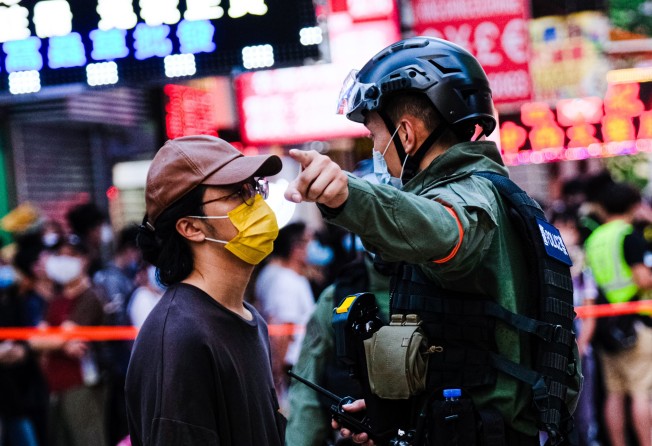
Lim Yoo-won, a web designer living near Seoul, doesn’t have much good to say about China these days.
To begin with, the 37-year-old resents that Beijing has not carried out a transparent investigation into the origins of Covid-19 and presented the findings to the world, nor apologised for failing to keep the virus contained within its borders.
“It feels like it was covered up,” said Lim, who lives in Incheon, about 30km (19 miles) west of the South Korean capital.
Beijing’s sweeping crackdown on dissent in Hong Kong, culminating in the imposition of a controversial national security law in June, has only made her perception of China worse.
“The situation in Hong Kong is quite shocking, and young people [in South Korea] think there is no respect for the differences between the two systems,” she said, referring to the “one country, two systems” framework that is supposed to guarantee that rights and freedoms not enjoyed on the Chinese mainland are preserved in the city until at least 2047.
Lim’s views are common in South Korea, where negative sentiment towards China has soared to unprecedented heights alongside Beijing’s growing influence and increasingly assertive moves in the region.
And while South Koreans’ souring attitudes are mirrored across the developed world, unlike elsewhere, it is the country’s younger generations that are particularly negative on the burgeoning superpower’s rise.
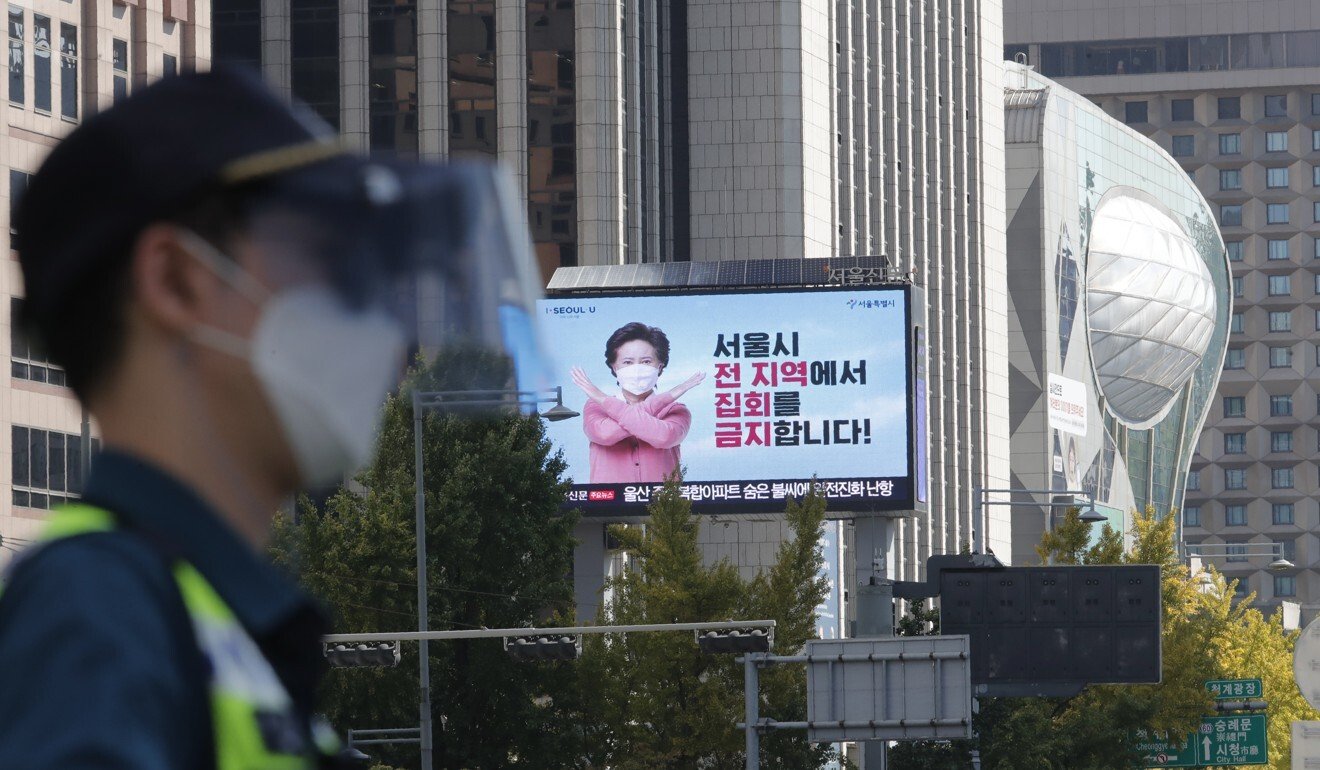
Eighty-two per cent of South Koreans aged 30-49 told pollsters they had a negative view of China, according to a survey released last week by the Pew Research Centre, while 80 per cent of those aged 18-29 felt the same. In the same survey, 68 per cent of South Koreans over 50 held a negative view.
Among 14 countries surveyed – including Australia, Britain, France, Japan and the United States – South Korea stood apart as the only one in which the youngest generation held more negative views than their elders.
Overall, 75 per cent of South Koreans viewed China negatively – the fourth-most negative response among the countries surveyed – compared to 31 per cent in 2002. Along with Japan, South Korea had the most negative assessment of China’s handling of the pandemic, with 79 per cent of respondents believing it did a bad job.
An even greater share, 83 per cent, had no confidence in Chinese President Xi Jinping doing the right thing in world affairs – a nine percentage point rise in a single year.
South Koreans’ increasingly dire public sentiment towards China stands in contrast to the relatively harmonious relations Seoul has been able to maintain with Beijing in comparison with many of its developed peers.
Despite being a key US ally, South Korea counts China as its biggest trading partner, sending the country about one-quarter of its exports.
The East Asian country is expected to be among Xi’s first trips abroad once the pandemic is brought under control, and Seoul has issued positive, though at times conflicting, signals about Beijing’s signature cross continental infrastructure plan, the Belt and Road Initiative.
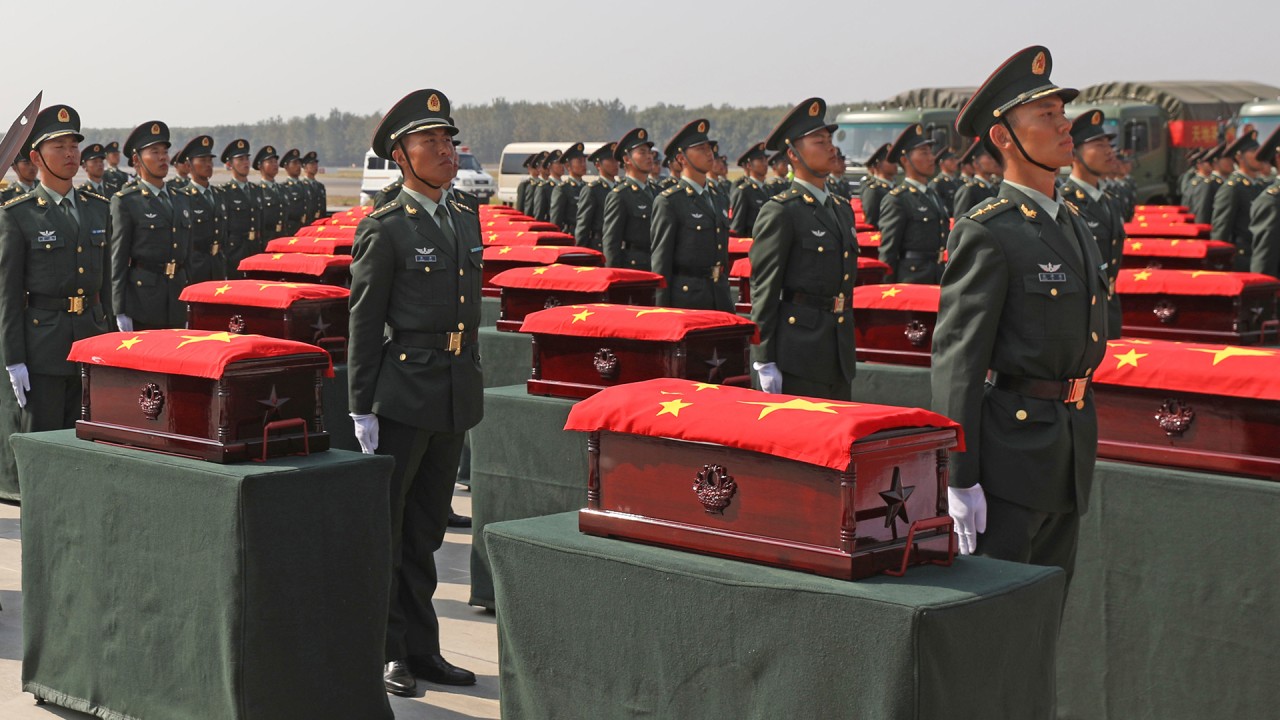
02:12
China stages high-profile ceremony to welcome home remains of 117 soldiers killed in Korean war
In South Korea, conservatives have on occasion accused President Moon Jae-in of being too deferential toward Beijing, latching onto his refusal to ban travel from China during the early days of the pandemic.
After briefly becoming a global hotspot of the virus, South Korea has largely managed to keep the virus under control, recording fewer than 500 deaths and far less economic disruption than in other developed countries.
An Junseong, an adjunct professor at Yonsei University in Seoul, said the pandemic had dealt a heavy blow to China’s image in South Korea.
“Many Koreans still call it ‘Wuhan virus’ since it originated from that city in China and they view it as another ‘made in China’ thing which causes serious bodily harm, as in the case of yellow dust,” said An, referring to long-standing public disquiet over seasonal pollution that blows into the country from China.
“Moreover, people are upset about the Chinese government’s mishandling of the pandemic, including lack of transparency and government censorship such as the arrest of the deceased Dr Li Wenliang to cover up the outbreak,” An added, referring to the late Chinese whistle-blower who was accused of spreading rumours before being turned into a national hero.
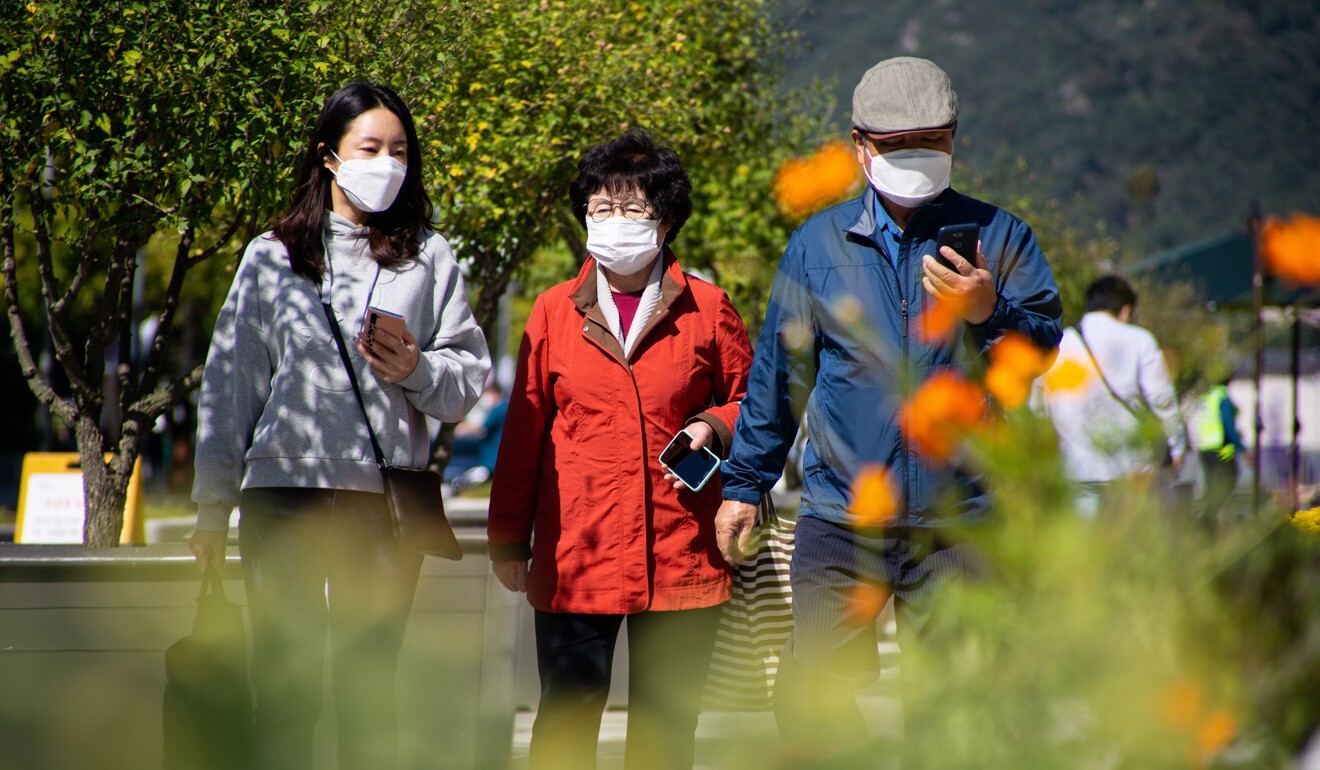
Many South Koreans in their 30s and 40s also had fond memories of Hong Kong from their youth, An said, and sympathised with its anti-government protesters, in which they saw parallels with their own country’s democracy movement of the late 1980s.
A student at Seoul‘s Hanyang University, who requested anonymity, said that incidents of mainland Chinese students tearing down posters and harassing Korean students who supported the Hong Kong protests had affected China’s image among young people.
“There are numerous internet networks where people can instantly share their stories nowadays,” she said. “I feel like most negative episodes and experiences with Chinese people are shared via social networking services immediately.”
Other observers pointed to older grievances between the sides.
Kim Jiyoon, director of the Center for Public Opinions and Quantitative Studies at the Asan Institute for Policy Studies, said Beijing’s support of its ally North Korea had hurt its image in the past.
Kim said this was especially the case after the North was blamed for the sinking of the South Korean warship Cheonan in 2010, and the shelling of the South Korean island Yeonpyeongdo later that year.
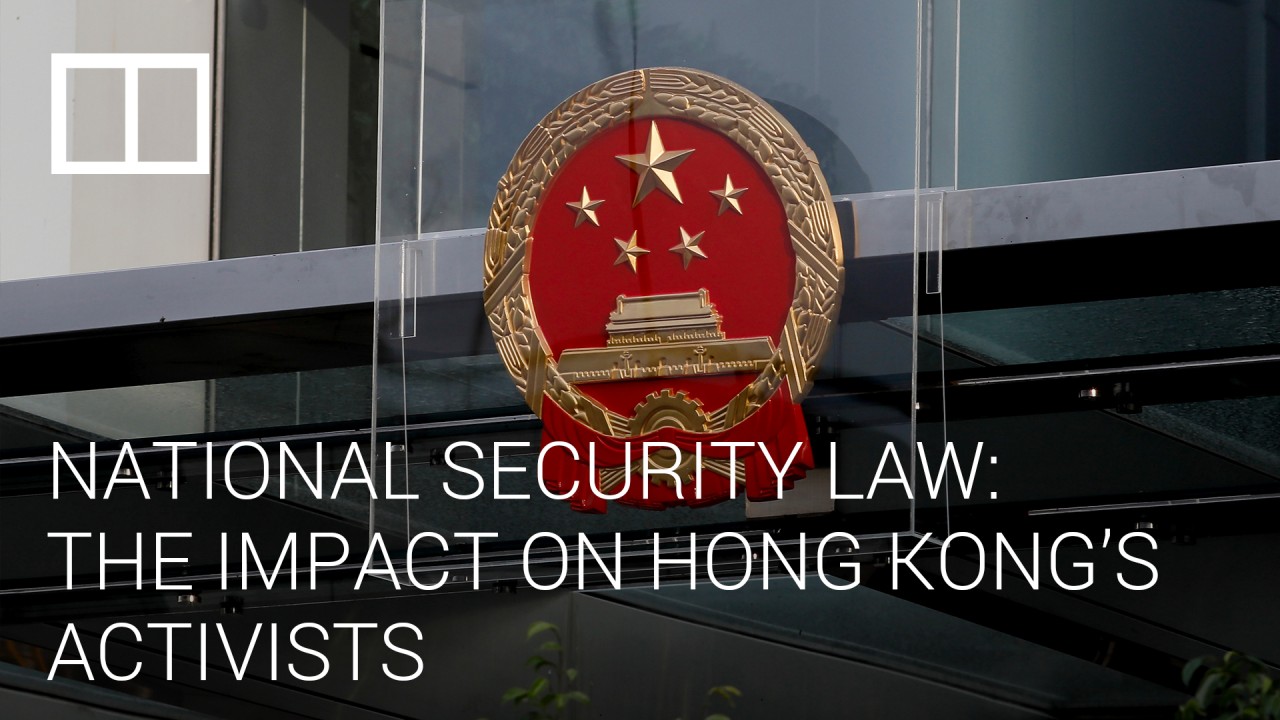
09:09
National Security Law: The impact on Hong Kong’s activists
“China did not take any side but demonstrated doubts about North Korea‘s provocation,” she said. “This was particularly important to young South Korean men who have to serve mandatory military duty.
“Cheonan and the shelling of Yeongpyeongdo formulated a strong conservative attitude among the young generation over security issues and antagonistic feelings against the North – and China to a certain extent – as a result.”
Beijing’s de facto boycott of South Korean tourism after Seoul deployed the US-backed missile defence system THAAD on its soil in 2017 had a similar result, Kim said.
“It was not just the young generation, but they were probably the most angered by the incident,” she said.
Jae-Hung Chung, a research fellow at the Seoul-based Sejong Institute, suggested, however, that Western popular culture and media coverage could be behind China’s deteriorating image.
“Currently, a large number of the youth population in Korea are exposed to Western culture from an early age and thus, their overall perspectives and mindsets are much Westernised compared to previous generations,” Chung said.
“Since the majority of China-related reports from Korea consist of negative analyses of China from a Western perspective and gossipy news, young South Koreans have relatively strong negative perceptions toward China.”